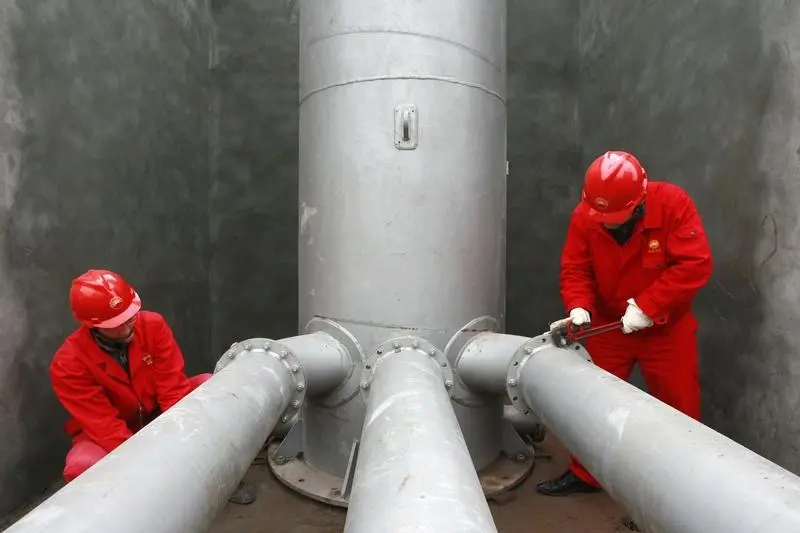PHOTO
LAUNCESTON, Australia- China's record imports of crude oil in October are without a doubt a bullish outcome, but within the broader pattern of growing demand there were some temporary factors lifting purchases.
China imported 40.8 million tonnes of crude in October, equivalent to 9.61 million barrels per day (bpd), a figure that beat the previous record of 9.60 million bpd from April.
Imports jumped a massive 31.5 percent from the same month a year earlier, and also by 9.6 percent from September, according to customs data.
It's probably worth trying to split the underlying trend in China's oil imports from the short-term factors that can cause outcomes such as October's record.
The Chinese oil import story is still one of strength, with economic growth, falling domestic output and the ongoing strategic storage buildup all contributing.
For the first 10 months of the year, China, the world's biggest crude buyer, imported 9.06 million bpd, a gain of 8.1 percent over the same period in 2017.
None of the three factors driving China's underlying import growth show any sign of changing dramatically in the short to medium term.
Even though China's economic growth has softened slightly as the United States imposes trade tariffs, it's likely that stimulus measures will help to keep gross domestic product expanding at a rate above 6 percent.
It's also likely that China's domestic oil production will continue its gentle slide, as shown by the 1.9 percent drop to 3.77 million bpd in the first three quarters of the year compared to the same period a year earlier.
China is also still some way from completing its goal of holding reserves equivalent to 90 days of import cover, with the International Energy Agency estimating it held 287 million barrels at the end of 2017.
China doesn't disclose how much crude it is directing into its strategic reserves, although various energy analysts believe it is in the region of 100,000 bpd.
IRAN, SMALLER REFINERS
Against this backdrop of solid underlying demand growth, October added a couple of factors that are unlikely to be permanent.
The first is that smaller, independent refiners were active in the month, buying almost 2 million bpd, which is a record high, according to data from Refinitiv Oil Research and Forecasts.
The independents were likely buying crude to use up their import quotas before they expired, raising the possibility that demand from this sector will moderate a touch in coming months.
There also seemed to be a bit of rush to buy Iranian crude before the Nov. 4 resumption of U.S. sanctions against the Islamic Republic's exports.
Imports from Iran were 654,000 bpd in October, according to Refinitiv data, which was 43 percent higher than September's 458,000 bpd.
The above numbers come with a caveat insofar as it's becoming harder to track Iranian exports as the country's tankers have started disabling their vessel-monitoring systems.
It may have been the case that Chinese importers were stocking up on Iranian crude ahead of the renewed U.S. sanctions.
This raises the possibility that China may wind back purchases in coming months, especially since the administration of U.S. President Donald Trump decided to grant waivers to eight buyers of Iranian crude, including top purchasers China and India, for a period of six months.
It's also worth noting that China's exports of refined products were only slightly weaker in October than in September, with 4 million tonnes being shipped, down from 4.06 million.
This equates to about 1.03 million bpd of product exports, with Chinese refiners likely to be keen to sell into the strong regional market for middle distillates such as diesel and jet fuel, where the profit margins are at, or close to, four-year highs.
China's product exports are up 19.4 percent in the first 10 months of the year, compared to the same period last year.
Overall, the picture that emerges is that China's appetite for imported crude oil remains strong and growing, and October's record, while boosted by temporary factors, is unlikely to last for too long given the robust fundamentals.
(Editing by Joseph Radford) ((clyde.russell@thomsonreuters.com)(+61 437 622 448)(Reuters Messaging: clyde.russell.thomsonreuters.com@reuters.net))





















